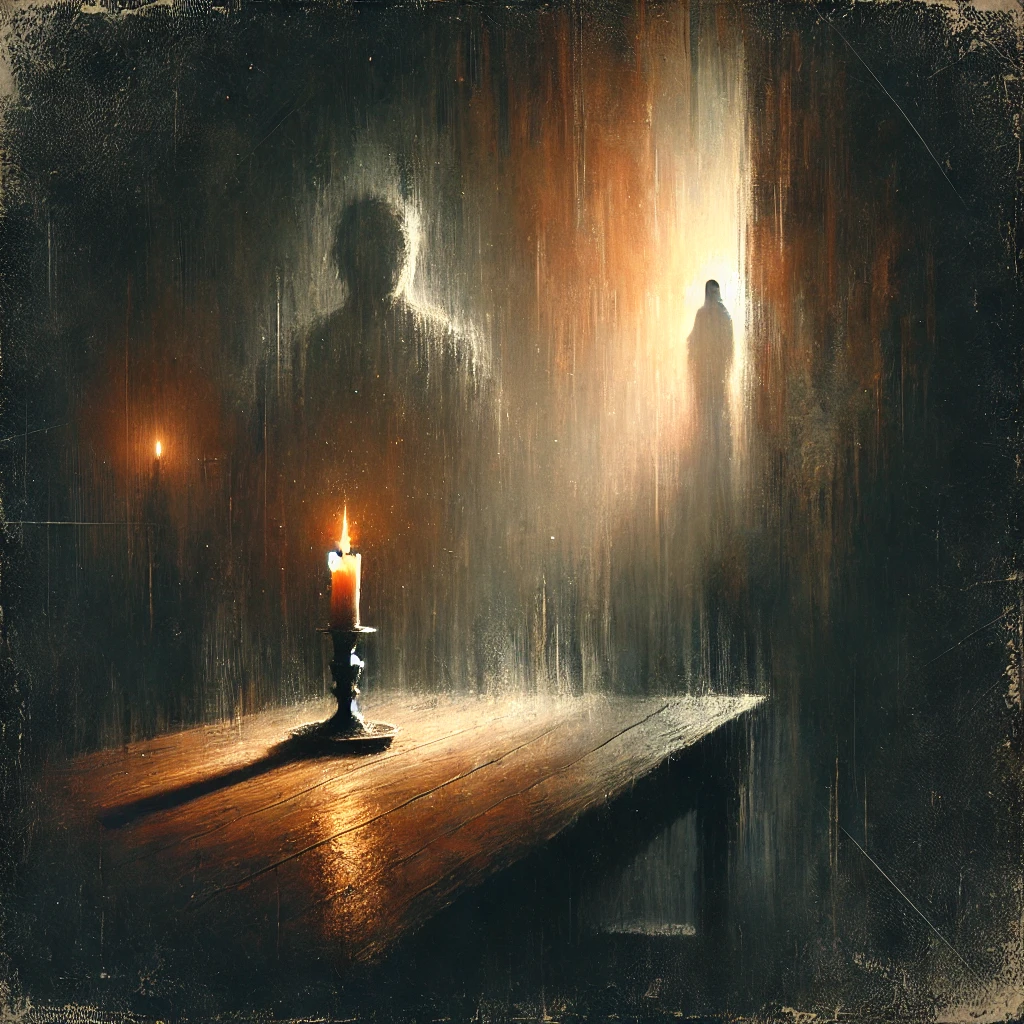If you are the dealer, I’m out of the game.
If you are the healer, it means I’m broken and lame.
If thine is the glory, then mine must be the shame.
Reflections on Leonard Cohen’s You Want it Darker

Leonard Cohen’s You Want It Darker is not just a song—it’s an experience, a meditation, and a reckoning. With its haunting melody and evocative lyrics, it speaks to something primal within us, a part of the soul that yearns for understanding even as it wrestles with the mysteries of existence. For me, this song is a companion in those quiet, reflective moments when questions outweigh answers and surrender feels like the only path forward.
Personal Reflection: A Companion in the Dark
When I first heard You Want It Darker, I felt its gravity immediately. The song seemed to hold a mirror to the human condition—its struggles, its paradoxes, and its fragile dance with faith. The repeated invocation of “Hineni” stirred something deep within me. It’s a word that signifies readiness and willingness, a sacred response to a Divine call. Yet in this song, it feels weighted with resignation, as though Cohen is saying, “Here I am, but I come bearing my brokenness, my questions, my humanity.”
This readiness to show up, even in the face of uncertainty, mirrors the journey of awakening. It’s not about having all the answers or embodying perfection—it’s about being present with what is, no matter how dark it may seem.
Yet within this darkness, there’s a subtle illumination. The acknowledgment of shadow becomes an act of surrender, a recognition that Light often reveals itself through cracks in the veneer.
Unpacking the Lyrics: Light Within the Darkness
The opening lines set a tone of stark honesty:
If you are the dealer, I’m out of the game.
If you are the healer, it means I’m broken and lame.
If thine is the glory, then mine must be the shame.
Here, Cohen grapples with the roles we assign to divinity—dealer, healer, judge. These lines carry a profound vulnerability, acknowledging the human condition as one of imperfection and dependency. It’s a stark contrast to the divine glory he references, yet the juxtaposition feels deliberate: to highlight the chasm between our aspirations and our realities.
The refrain “You want it darker” is a confrontation. It’s as if Cohen is challenging the divine, questioning why suffering exists, why the flame of hope is so easily extinguished. Yet within this darkness, there’s a subtle illumination. The acknowledgment of shadow becomes an act of surrender, a recognition that Light often reveals itself through cracks in the veneer.
The cracks, the shadows, the moments of forgetting—they’re all part of the tapestry that leads us back to our essence. And then, in one lifetime, perhaps this one, the realization arises: We were never truly lost.
Cohen’s Understanding of the Human Journey
Cohen had such an extraordinary ability to distill the essence of the human journey—its rawness, its beauty, its shadows, and its moments of grace. You Want It Darker captures that universal truth: that we are here to experience, to feel deeply, to navigate the paradoxes of being human until the remembering dawns within us.
Every lifetime, every experience—no matter how dark or light—is part of that grand unfolding. It’s not about rushing to the finish line or trying to avoid the pain; it’s about embracing it all. The cracks, the shadows, the moments of forgetting—they’re all part of the tapestry that leads us back to our essence. And then, in one lifetime, perhaps this one, the realization arises: We were never truly lost.
Cohen’s words seem to echo that understanding. His music gives permission to embrace the journey exactly as it is, knowing that the remembering is inevitable. And in that remembering, the darkness and the light merge, and we realize they were never separate to begin with.
Hineni: The Call and the Response
The Hebrew word Hineni (Here I am) is central to the song’s emotional and spiritual resonance. In scripture, it’s the response of prophets and patriarchs to God’s call. Yet Cohen’s delivery of it feels both reverent and weary. It’s not the triumphant proclamation of a hero, but the quiet offering of a soul stripped bare.
In many ways, Hineni reflects the journey of realization. It’s the moment when we stop resisting and allow ourselves to be seen, imperfections and all. Cohen’s Hineni is not just a response to the divine; it’s a declaration to life itself: “Here I am, even in the darkness.”
The Paradox of Light and Dark
Cohen’s lyrics often dance with paradox, and You Want It Darker is no exception. Lines like:
A million candles burning for the help that never came
We kill the flame
convey both hope and disillusionment. The image of candles burning suggests devotion and longing, yet their Light fails to summon the divine intervention sought. There’s a profound honesty in this—a recognition that faith is not always rewarded with tangible results. Yet the act of lighting the candles itself becomes meaningful, a testament to humanity’s resilience and yearning.
The song’s paradoxical nature mirrors the journey of awakening and realization. It’s in embracing both the Light and the Dark that we find wholeness. The cracks in our understanding, in our beliefs, in our very selves, become the entry points for our Light—for grace, for wisdom, for transformation.
You Want It Darker is not a song to be understood so much as one to be lived with.
Broader Themes: Awakening and Surrender
You Want It Darker is, at its heart, a song about surrender. It’s not the passive surrender of defeat, but the active surrender of one who chooses to face the darkness head-on. Cohen’s struggle with demons “middle class and tame” reflects the human tendency to wrestle with the mundane even as we yearn for the transcendent. His acknowledgment that he “didn’t know he had permission to murder and to maim” speaks to the shock of realizing our own shadow, the capacity for harm that lies within.
Yet this surrender is not without hope. The refrain of Hineni and the song’s raw honesty suggest that in admitting our limitations, in showing up as we are, we open ourselves to great part of ourselves. We make space for the divine—not as a savior swooping in to fix things, but as a quiet presence that meets us in our readiness.
Closing Thoughts: An Ongoing Conversation
For me, You Want It Darker is not a song to be understood so much as one to be lived with. Its power lies in its ability to hold space for our questions, our struggles, and our surrender. It’s a reminder that darkness is not the absence of Light, but a necessary part of its emergence.
As I continue to sit with this song, I find myself returning to Cohen’s quiet invocation: Hineni, hineni. I’m ready, my Lord. Perhaps this readiness is not about certainty, but about willingness—to be present, to be vulnerable, to be human. And in that willingness, perhaps we, too, become the Light that gets in.
Listen to You Want It Darker
“You Want It Darker”
If you are the dealer, I’m out of the game
If you are the healer, it means I’m broken and lame
If thine is the glory then mine must be the shame
You want it darker
We kill the flameMagnified, sanctified, be thy holy name
Vilified, crucified, in the human frame
A million candles burning for the help that never came
You want it darkerHineni, hineni
I’m ready, my lordThere’s a lover in the story
But the story’s still the same
There’s a lullaby for suffering
And a paradox to blame
But it’s written in the scriptures
And it’s not some idle claim
You want it darker
We kill the flameThey’re lining up the prisoners
And the guards are taking aim
I struggled with some demons
They were middle class and tame
I didn’t know I had permission to murder and to maim
You want it darkerHineni, hineni
I’m ready, my lordMagnified, sanctified, be thy holy name
Vilified, crucified, in the human frame
A million candles burning for the love that never came
You want it darker
We kill the flameIf you are the dealer, let me out of the game
If you are the healer, I’m broken and lame
If thine is the glory, mine must be the shame
You want it darkerHineni, hineni
Hineni, hineni
I’m ready, my lordHineni
Hineni, hineni
Hineni
You might enjoy this AI generated conversation about Reflections on Leonard Cohen’s “You Want It Darker”
